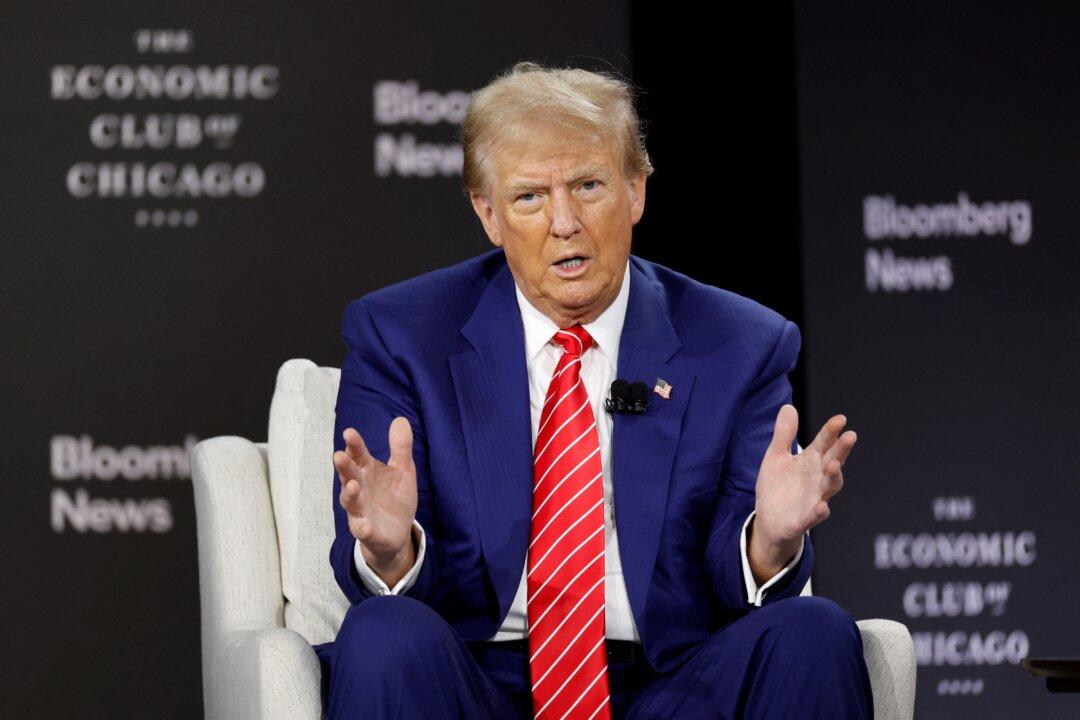Former president Donald Trump said he “wouldn’t have to” use military force against a China blockade of Taiwan because Chinese communist leader Xi Jinping respects him and “knows I’m [expletive] crazy.”
Trump told the Wall Street Journal editorial board on Oct. 17 that if re-elected, he would use the threat of increasing tariffs on China-made goods to 150–200 to dissuade Xi from besieging Taiwan.



